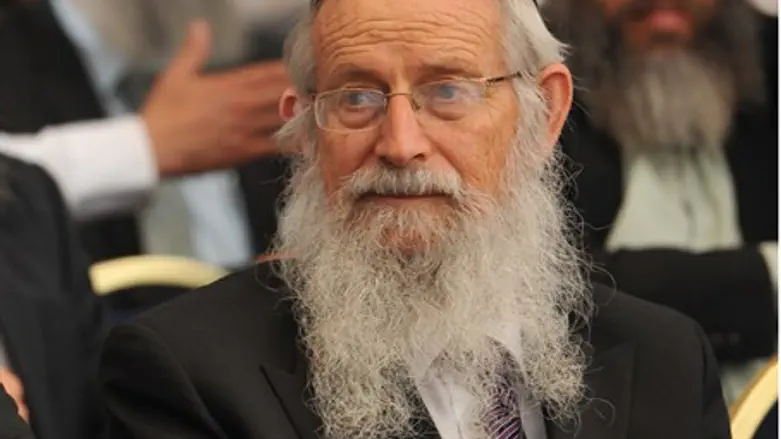
Rabbi Zalman Melamed, head of the Beit El Yeshiva, weighed in Saturday night on the controversial subject of the mass hareidi rally in Jerusalem planned for Sunday.
Hareidi leaders have called for a demonstration against the government’s decision to impose criminal sanctions on hareidi yeshiva students who do not enlist in the IDF.
Many religious-Zionist Jews have been unsure whether to join the protest or not. Some Zionist rabbis have said they will be at the demonstration; others have called to stay far away from the mass event.
Rabbi Melamed expressed understanding of both positions. “On the one hand, it’s such a big event, with so many people praying together… Prayer is always a powerful thing,” he said.
It would be good for the hareidi community, and Israel as a whole, if the hareidi community were to break its isolation, he continued – but integration is unlikely to be achieved by force.
“We very much want the hareidi community to be part of bearing the burden of public responsibility, but there is a wall between the hareidi community and everyone else,” he said. The wall was built by the hareidi community for ideological reasons, he continued, among them the concern that without isolation, some members of the community would suffer spiritually.
“There is some truth to that, but there is also a price to be paid,” he warned.
If the "wall" were to come down "it would be tremendously beneficial," he continued. Hareidi men who have learned Torah for several years but do not have the talent to be rabbis or Torah teachers could create "a spiritual revolution" by all joining the workforce and interacting with non-hareidi Israelis, he suggested.
Many hareidi men who are currently learning Torah full-time would benefit by joining the workforce, he declared. “Those who are good [Torah students] but not great – if they went out to work and also made time for Torah study, they would be scholars who support themselves through their own work, and that is the ideal,” he explained.
The problem is that lawmakers are attempting to integrate hareidi Jews by force, and that many do not have good intentions, he said, adding, “We very much regret this fact.”
However, he said, if religious Zionists are to join their hareidi brethren in protesting the attempt to punish non-enlistment, ultimately the hareidi community must first change its approach to religious Zionism. “There’s so much hate and slander against our community and our rabbis, who are treated as if they are not rabbis, as if they are apostates,” he lamented.
“You know that I’ve always very much wanted unity within our community, and for my entire life I have dreamed, too, of unity with the hareidi community and ultimately with the entire nation. But that can happen only when there is mutual respect,” he said.
“Regarding tomorrow, I am uncertain. I am waiting for an announcement from the hareidi representatives, saying that they want us and treating us properly… We’ll wait until to tomorrow, there’s time,” he concluded.